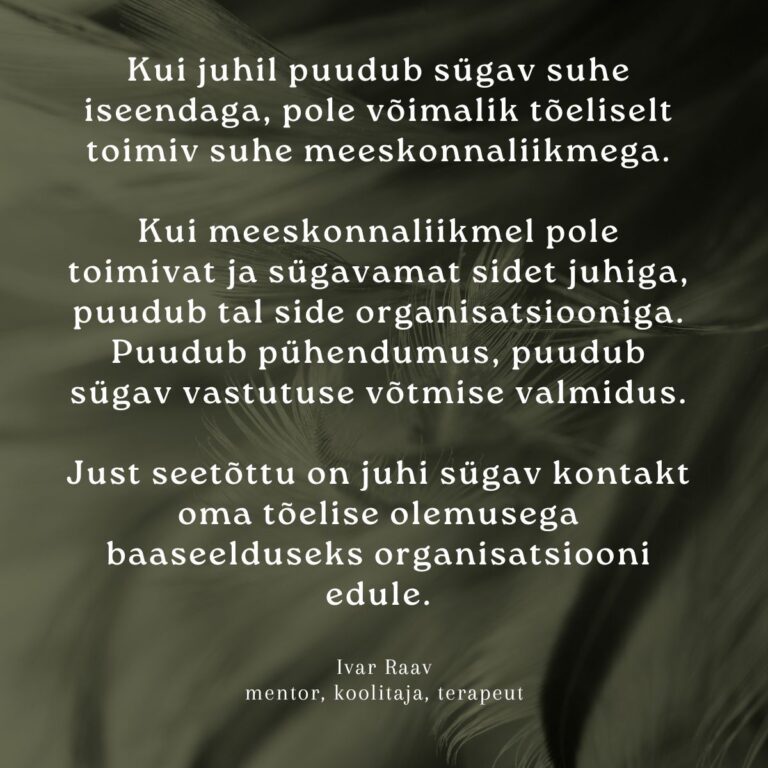The role of the manager, or more precisely the need for the content of that role, has changed significantly in the last 10 years.
Many years ago, the leader was mainly a catalyst, an igniter, a leader, a visionary towards shared results. Many more years ago, the manager was the organiser, the giver of orders and expectations and the monitor of compliance.
Today, one of the most important foundations of the role of a leader is self-awareness. The leader as a person is the greatest management tool. Leadership techniques can be Googled, read about and learnt, but the most important thing is an interest in people, which starts with an interest in the deeper inner world of oneself, and that requires individual work, which cannot be done by Googling.
The employee’s contact with the organisation requires a deep contact with the manager, because it is the manager who represents the organisation to the employee. We can, however, keep in touch with a person who is in touch with himself and his attention is not only on the outside and on how the world is threatening him, on what he still has to achieve and prove to the world, to his father or mother, to his family, to society or to his competitor.
The head (results) and the heart (emotions, the deeper purpose of life) form the human whole. And if you only live in your head, that head gets overheated pretty quickly. If we can be in our head and in our heart at the same time, we can make connections with other people, because there is no other way to get results in an organisation than in relation and connection with other people. But at the heart of it is a truly functional and excellent relationship with yourself.
But if you are uncomfortable with your life and things are not going quite the way you want or are not giving you the peace you need, I am there for your team as well as for you individually, either in training or in therapy.
Having lived the first 36 years of my life in my head, I can tell you from experience that getting out of that mindset is liberating and makes life enjoyable. And what is more, for the pragmatist, it may help – it also improves the results, but they come much more easily.

